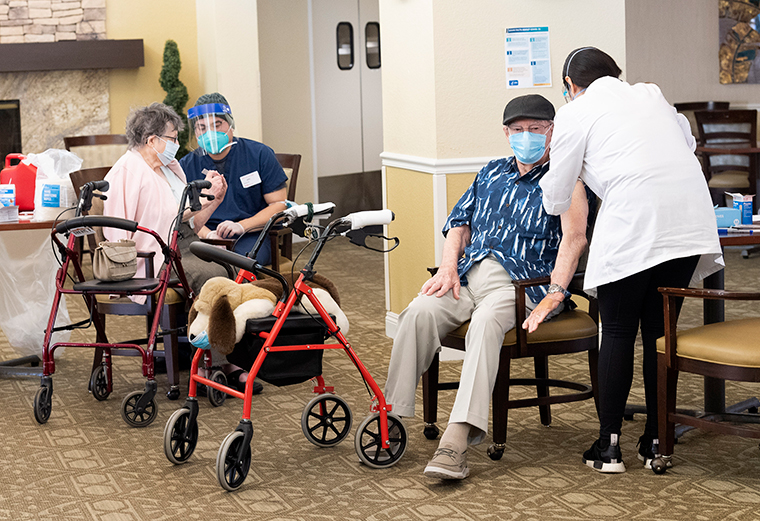
The Pfizer/BioNTech and Moderna vaccines both reduce asymptomatic and symptomatic coronavirus infections among vulnerable nursing home residents in the real world, according to new data.
The incidence of Covid-19 has decreased over time among both vaccinated and unvaccinated residents in 280 nursing homes across 21 states, researchers wrote in a letter to The New England Journal of Medicine Wednesday.
The researchers – from Brown University in Rhode Island and long-term care provider Genesis HealthCare in Pennsylvania – examined data on 18,242 nursing home residents who received at least one dose of vaccine as of mid-February and 3,990 residents who were unvaccinated as of March 31. Among those who had received at least one dose, 13,048 completed two doses.
The residents were tested every three to seven days, the researchers said.
The incidence of Covid-19 dropped among those who had received at least a first dose, from 4.5% of vaccinated residents within two weeks after receiving a first dose to 1.4% between 15 and 28 days later, the researchers found.
Among the residents who completed two doses, coronavirus infections were seen among 1% of them within two weeks after receiving the second dose compared with 0.3% after two weeks, the data showed.
Among the unvaccinated residents, coronavirus infections were seen among 4.3% of them within two weeks after the first vaccination clinic began to 0.3% 42 days later.
“Our observation of a reduced incidence of infection among unvaccinated residents suggests that robust vaccine coverage among residents and staff, together with the continued use of face masks and other infection-control measures, is likely to afford protection for small numbers of unvaccinated residents in congregate settings,” the researchers wrote.